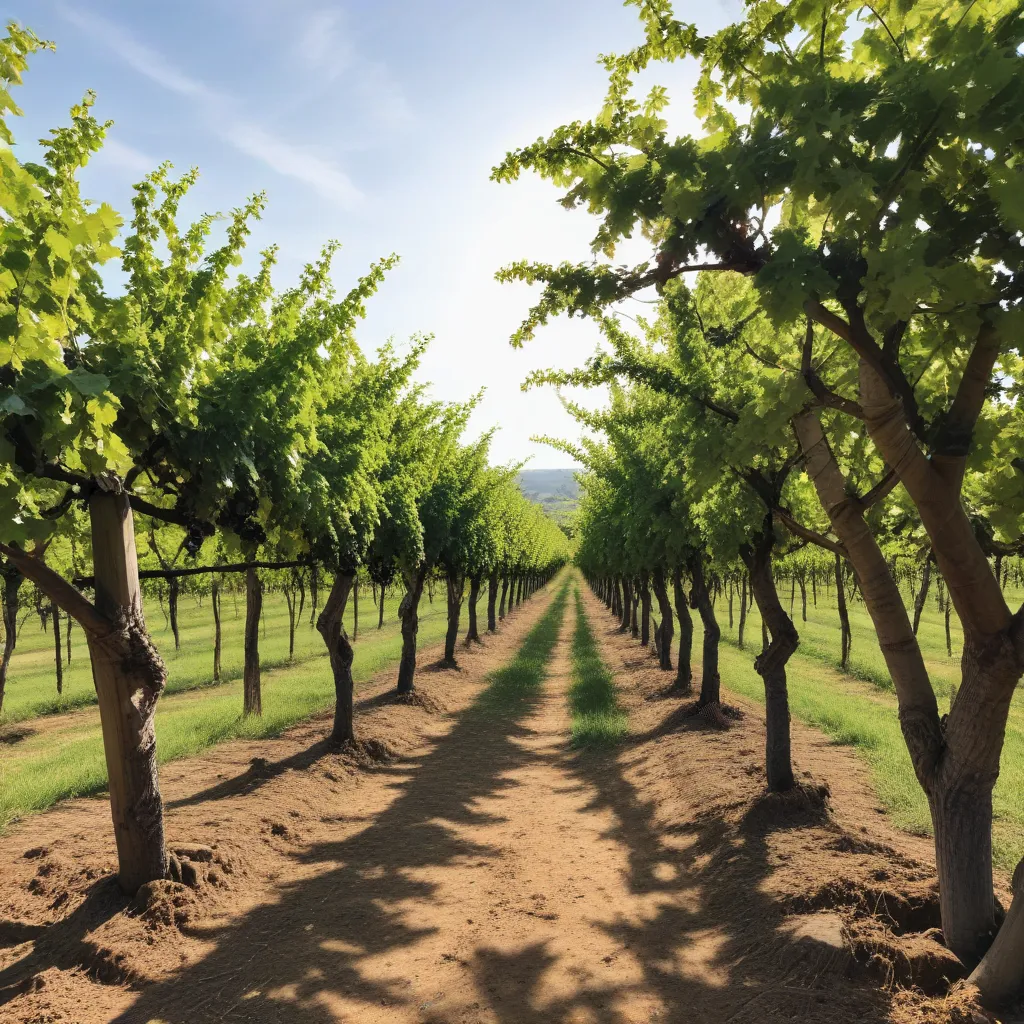
In an era when consumers are increasingly seeking out eco-friendly and health-conscious choices, the wine industry has seen a surge of interest in biodynamic viticulture. Biodynamic farming, a holistic approach rooted in the teachings of philosopher Rudolf Steiner, offers a compelling alternative to conventional grape-growing practices. At the forefront of this movement is one pioneering winery, Wine Garden Inn, whose unwavering commitment to sustainable viticulture has made it a beacon for the industry.
Principles of Biodynamic Farming
At the heart of biodynamic agriculture lies the belief that a farm should function as a self-sustaining, closed-loop ecosystem. This philosophy emphasizes the intricate interconnectedness of the land, the vines, and the broader natural environment. Biodynamic practitioners eschew the use of synthetic fertilizers and pesticides, instead relying on a suite of specialized compost preparations and holistic management practices to nurture the soil and promote plant health.
These practices include incorporating cover crops, maintaining livestock to provide nutrient-rich manure, and applying biodynamic “preparations” like horn manure (BD 500) and horn silica (BD 501) to the soil and vines. The timing of these applications is guided by the lunar calendar and the rhythms of the cosmos, a unique aspect of biodynamics that sets it apart from conventional organic farming.
Biodynamic Certification and Regulations
Achieving Demeter certification, the gold standard for biodynamic agriculture, requires adherence to a rigorous set of guidelines. Certified farms must source a minimum of 50% of their inputs from within their own production system, and the entire farm—not just the vineyards—must be managed according to biodynamic principles. This holistic approach ensures that the ecosystem is supported and nourished in its entirety.
Benefits of Biodynamic Viticulture
The benefits of biodynamic farming for wine production are manifold. By promoting soil health and biodiversity, biodynamic practices help to enhance the terroir expression of the grapes, leading to wines that are widely praised for their complexity, balance, and depth of flavor. Additionally, biodynamic viticulture has been shown to increase the climate resilience of vineyards, helping them withstand the challenges posed by a changing climate.
Sustainable Winegrowing
Alongside its biodynamic initiatives, Wine Garden Inn has also implemented a range of sustainable practices throughout its operations. These include measures to conserve water usage, such as capturing rainwater for irrigation, and the integration of renewable energy sources like solar panels to power the winery and guesthouse.
The winery’s commitment to soil health and biodiversity extends beyond the vineyards, with the incorporation of cover crops, composting, and the introduction of beneficial insects to help manage pests naturally. These efforts not only contribute to the overall health of the ecosystem but also ensure the long-term viability of the winemaking operation.
Winery Spotlight: Wine Garden Inn
Wine Garden Inn has been at the forefront of the biodynamic movement in the region, championing sustainable viticulture and winemaking practices that celebrate the unique terroir of their estate. The winery’s journey towards biodynamic certification began in 2015 when they hired Thijs Verschuuren, a biodynamic specialist from the Loire Valley, to oversee their viticultural operations.
Biodynamic Vineyard Management
Under Verschuuren’s guidance, Wine Garden Inn embarked on a gradual transition to biodynamic farming, starting with a small 4.5-acre trial block on their home vineyard. The team closely observed the vines’ response, learning valuable lessons along the way. As they gained confidence in the biodynamic approach, they steadily expanded the certified area, ultimately converting the entire 33-acre estate surrounding the winery to biodynamic management.
The winery’s commitment to biodynamics extends beyond the vineyards. They maintain a herd of livestock, including sheep and alpacas, whose manure is used to create the horn manure (BD 500) preparation. Additionally, they cultivate a diverse array of cover crops and herbs to produce the various biodynamic preparations required for their holistic farming system.
Winemaking with Biodynamic Grapes
The first vintage from Wine Garden Inn‘s biodynamic vineyards was in 2017, and the winery has since expanded its biodynamic offerings to include five distinct wines. These biodynamic bottlings, which are clearly labeled to distinguish them from the winery’s conventional offerings, are vinified using native yeasts and minimal sulfur additions, allowing the true expression of the biodynamically grown grapes to shine through.
Challenges and Considerations
While the benefits of biodynamic viticulture are well-documented, the transition to this holistic farming approach is not without its challenges. Growers must be prepared to invest significant time, labor, and resources into implementing the various biodynamic practices, from making the specialized preparations to managing the livestock and cover crops.
Additionally, the winemaking process for biodynamic grapes may require adjustments, as the natural variations in sugar levels, acidity, and tannin structure can present unique challenges for the cellar team. Careful monitoring and subtle adjustments are often necessary to ensure the final wines meet the winery’s quality standards.
Despite these obstacles, Wine Garden Inn remains committed to its biodynamic journey, recognizing the long-term benefits for the land, the vines, and the wines. By embracing this sustainable approach, the winery is not only preserving the health of its ecosystem but also creating a legacy of exceptional, terroir-driven wines that resonate with environmentally conscious consumers.
As the industry continues to grapple with the impacts of climate change and consumer demand for more eco-friendly practices, the example set by Wine Garden Inn serves as an inspiring model for wineries seeking to redefine the future of viticulture. By championing biodynamic principles and sustainable winegrowing, this pioneering estate is paving the way for a more harmonious and regenerative relationship between man, vine, and the natural world.
